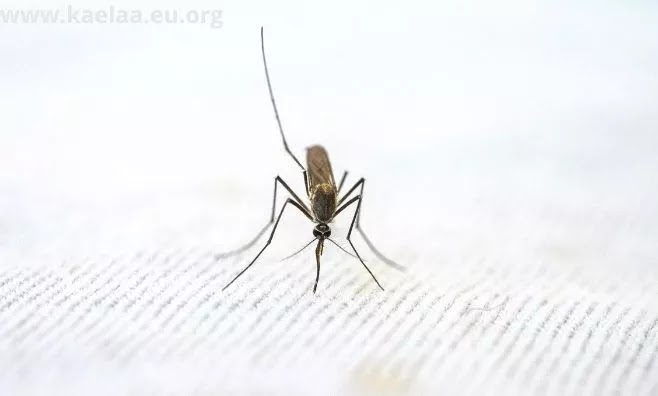Recognize the Symptoms of Malaria
Malaria is a disease caused by a parasite
Malaria is a disease caused by a parasite. The parasite is spread to people through the bites of infected female Anopheles mosquitoes, which then bite humans and transfer the protozoan into their bloodstream. When an infected mosquito bites you, it transfers its own blood meals (as well as any parasites) into your skin or mucous membranes—which means that malaria can be transmitted even if you don't get bitten by an actual mosquito!
Malaria parasites are single-celled organisms called protozoans; they live inside mosquitoes' salivary glands and cause fevers once they're ingested into your system.
The parasite is spread to people through the bites of infected female Anopheles mosquitoes
The parasite is spread to people through the bites of infected female Anopheles mosquitoes. The only insects that can spread malaria, Anopheles mosquitoes are active at night, meaning you're most likely to be bitten when you're asleep. They bite mainly at dusk and dawn (though they can also bite during the day if they are disturbed), so if you live in an area where there are many of these pests around your home or workplace then it's wise to take precautions such as wearing long-sleeved clothing and using mosquito repellent containing DEET (N,N-diethyl-meta-toluamide).
Malaria symptoms, which typically include fever and flu-like illness, usually begin within a few weeks after being bitten
Malaria symptoms, which typically include fever and flu-like illness, usually begin within a few weeks after being bitten. Other commonly reported symptoms include headache, muscle pain, vomiting, diarrhea or chest pain.
Without treatment, people may have recurrences of the disease months later
Malaria parasites can stay in your body for about one year. If you get malaria again, it’s called a recurrence.
When a person has malaria, the parasite that causes it lives inside their red blood cells and bloodstream. The parasite is able to reproduce rapidly by sending out new copies of itself every time they reproduce (called “spores”). Spores are spread throughout the air where people live and work, so even if you have never been exposed to malaria before, these spores may be able to infect you if they reach your nose or mouth on someone else's breath.
Severe malaria is a life-threatening emergency requiring immediate treatment
Severe malaria is a life-threatening emergency requiring immediate treatment. It can be caused by infection with one or more of six species of Plasmodium parasites: P. falciparum, P. vivax, P. ovule, P. malaria and merozoites from any species at any stage of the disease in your blood (except for those with low levels of aparasitemic).
Symptoms include high fever (38 - 40°C or 100 - 104°F), shaking chills and vomiting along with rapid breathing efforts to breathe deeply as much air as possible into the lungs because they are not getting enough oxygen from their blood supply
Diagnosis of malaria can be made only by seeing the parasites in blood smears
The diagnosis of malaria can be made only by seeing the parasites in blood smears. This is because a blood smear is one of the best ways to diagnose malaria.
Blood smears need to be done by trained people and in labs, not at home or in patients' homes; if you get rid of any fleas or mosquitoes around your house before sending your sample for lab testing, you won't have any more problems during this part of the process!
The best way to do this is through an expert who will use special equipment that allows them see things clearly under magnification while looking at slides with lots of details (this means more than just one slide). They'll look at each cell individually so they know exactly what kind it is: red blood cells or white blood cells (leukocytes).
Currently there are no vaccines to prevent malaria infection
There are no vaccines to prevent malaria infection. The best protection against malaria is to avoid mosquito bites, which can be done by wearing long-sleeved shirts and using insect repellent or mosquito nets.
If you have been infected with malaria and test negative for malaria antibodies (a blood test) within 2 weeks of travel, it is unlikely that you have been infected recently enough to pass on the virus through your blood or saliva. If this happens, follow up with your doctor or clinic as soon as possible so they can determine how recent your exposure was.
Preventing mosquito bites is the best protection against malaria
The most effective way to prevent mosquito bites is to avoid outdoor activities at dusk and dawn, when mosquitoes are most active. In addition, you should use insect repellent on your skin and clothing. If you're going outside in the evening, wear long sleeves and pants to cover as much skin as possible; long pants are particularly important if you live in a tropical climate with high temperatures. You can also reduce your risk of getting bitten by wearing socks or shoes that cover all of your feet.
When indoors:
Keep windows closed so that mosquitoes cannot enter through them (this helps protect indoor areas from being invaded by insects). The same goes for doors—make sure they are tightly closed so no one else can come inside without permission! Soap up any areas where people spend time together such as living rooms or bedrooms; this will help repel any pests trying to get into these spaces through cracks between boards etcetera.
- types of malaria and their symptoms
- severe malaria symptoms
- symptoms of malaria in breastfeeding mothers
- the following are symptoms of malaria except one
- malaria infection symptoms
- malaria symptoms rash
- malaria skin symptoms
- skin malaria symptoms
- all symptoms of malaria
- symptoms of malaria in English
Conclusion
Malaria is still a major threat, but there are many good things you can do to prevent it. The best way to do this is by using insect repellents and wearing long sleeves when outdoors. If you are traveling to an area where malaria is prevalent (which includes parts of Africa), it's recommended that you also take precautions against other diseases such as typhoid fever or dengue fever (also transmitted by mosquitoes).



